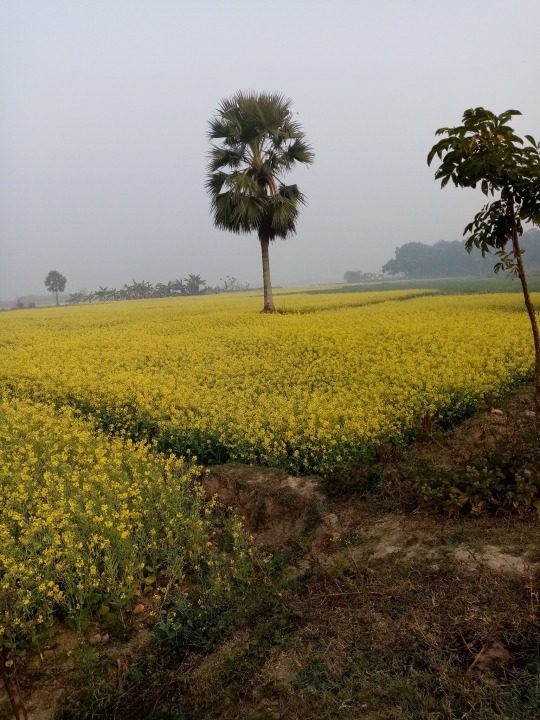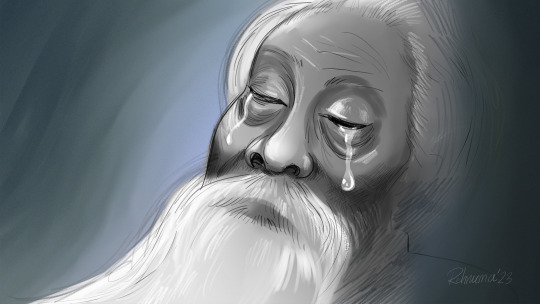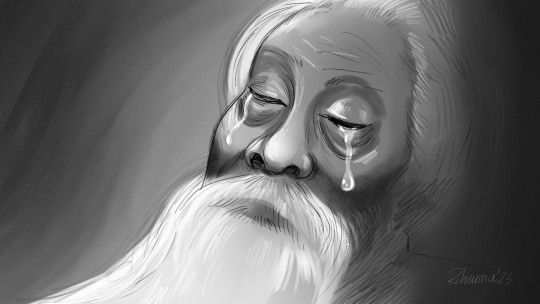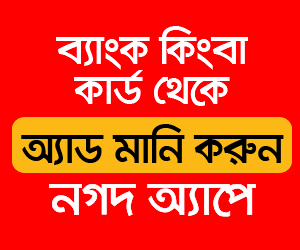#bangladeshi newspaper
Text

Winter in Bangladesh
#naturalbeauty#bangladesh#enviromental#enviroment art#nature#winter#winter in bangladesh#winter beauty#village#village witch#bangladeshi village#bangladeshi newspaper#photography
1 note
·
View note
Text
ইডকল নিয়োগ বিজ্ঞপ্তি IDCOL job Circular সর্বোচ্চ বেতন লাখের বেশি
ইডকল নিয়োগ বিজ্ঞপ্তি IDCOL job Circular সর্বোচ্চ বেতন লাখের বেশি
IDCOL Job Circular 2022
ইডকলে একাধিক পদে চাকরি, সর্বোচ্চ বেতন লাখের বেশি
নন-ব্যাংকিং আর্থিক প্রতিষ্ঠান ইনফ্রাস্টাকচার ডেভেলপমেন্ট কোম্পানি লিমিটেড ( ইডকল নিয়োগ বিজ্ঞপ্তি ) সম্প্রতি লোকবল নিয়োগ দেয়ার জন্য একটি বিজ্ঞপ্তি প্রকাশ করেছে। আমরা আমাদের এই ওয়েব সাইটে সম্পূর্ণ বিজ্ঞপ্তির বিস্তারিত বিবরণ তুলে ধরেছি, যেন নI nfrastructure Development Company Limited ( IDCOL job Circular ) নিয়োগ বিজ্ঞপ্তির…

View On WordPress
#Advertisement on the Net#all bangla news#Awami League#Bangla#Bangla news#bangla news 24#bangla news paper#bangla newspaper#Bangladesh#Bangladesh Business#Bangladesh Media#Bangladesh News#bangladesh newspaper#Bangladesh Politics#Bangladesh Sports#Bangladeshi#bangladeshi newspaper#banglanews24#bd news#bd newspaper#Bengali#bengali daily newspaper#bengali newspaper#Betar#BNP#breaking news of bangladesh#Business#business news#buy &amp#buy and sell
0 notes
Text


#cartoon#newspaper illustration#editorial illustration#bangladesh#thedailystar#illustration#rehnumaart#design#attack#poet#bangladeshi
0 notes
Text
BD Open News
BD open news is Bangladeshi popular onilne base newspaper This is the pioner of online news media of Bangladesh
#BD open news#open news#Bogura news#bogura#Bangladeshi news#bad news#bdnews#Bangla news#bangla newspaper#bangla news paper#bangla news 24#bd news 24
0 notes
Text
0 notes
Text
Gas crisis hits industries
Gas crisis hits industries
The gas crisis is seriously affecting the country’s industries, including the export-oriented apparel and textile sectors, already struggling to cope with power cuts for a more than a week, besides the suspension of fertiliser production at two state-owned factories.
Leaders of the Bangladesh Knitwear Manufacturers and Exporters Association, the Bangladesh Textile Mills Association and apparel…

View On WordPress
#Bangla Online News#Bangladesh Latest News#Bangladesh News#Bangladesh Newspaper#Bangladeshi Newspapers#BD English Newspapers#BD Newspapers#Daily New Age#Daily New Age BD#Featured#Latest Bangladesh News#Leading English Daily among Bangladesh Newspapers#Most Popular Daily Newpaper in Bangladesh#Most Popular English Daily Newpaper in Bangladesh#Most Popular Outspoken English Daily Newpaper in Bangladesh#Most trusted Bangladesh Newspaper#New Age#New Age Bangladesh Newspaper#New Age BD#The Daily New Age#The Daily New Age BD#The New Age#The New Age BD
0 notes
Text
At first glance, the photo is an innocuous one: Taken on a sunny day in 2022, a cheerful group of twelve men and women are huddled together, posing for a selfie. They’re all dressed in military fatigues — their badges identify them as Egyptian, Indonesian and Bangladeshi officers. One man is wearing the light blue beret of a UN peacekeeper: The group has just finished their induction course for their stint at MONUSCO, the UN's mission in the Democratic Republic of Congo.
Innocuous, that is, but for a bald man with glasses in the center of the photo; his arm casually draped around the shoulder of an Indonesian officer. A military source shared the picture pulled from social media with DW, Sweden-based investigative outlet Netra News, and German newspaper Süddeutsche Zeitung.
Before the officer was deployed to the UN mission, he was deputy director of the Intelligence Wing of an elite force in Bangladesh: The Rapid Action Battalion, RAB.
The force, made up of Bangladesh’s police and military, was set up in 2004 with the support of the US and others to fight terrorism and violent crime. But its brutally efficient methods meant it was soon mired in accusations of wide-spread human rights violations, leading its former backer, the US, to impose sanctions on RAB in 2021.
In an investigation published last year, DW and Netra News revealed that RAB commits torture, murder, and abductions – and goes to great lengths to cover up its crimes. Its targets: alleged criminals, opposition activists, and human rights defenders.
Its members seemingly operate with complicity from the highest political level in Bangladesh, according to two whistleblowers. A claim the government rejected as "baseless and untrue."
RAB members sent to UN missions
A year after those revelations, DW, Netra News and Süddeutsche Zeitung can reveal that members of this infamous unit are seemingly being sent on peacekeeping missions: The deputy intelligence chief turned peacekeeper was not, we found, the only man who came from the group that several of our sources referred to as "death squad."
For months, DW and its partners conducted interviews with military and UN sources in Bangladesh and beyond; trawled through classified military files, deployment lists and painstakingly identified officers through Flickr, LinkedIn and Facebook.
One man's UN deployment was corroborated with the help of his daily running routes uploaded on a jogging app: for months, the avid jogger ran around Bangui, the capital of the Central African Republic, the seat of the UN's MINUSCA mission. In another picture, he posed for a selfie outside RAB's headquarters in Dhaka.
Two deputy heads of unit that runs torture cells among the peacekeepers
We found more than 100 RAB officers who went on peacekeeping missions, 40 of them within the last five years alone.
While we don’t have evidence that every single officer was implicated in crimes, at least three of them — Nayeem A., Hasan T. and Masud R. — worked for RAB's infamous Intelligence Wing, two as deputy directors. According to several sources, it is this unit that runs a secret network of torture cells across Bangladesh, some of them located in safe houses, others hidden deep inside RAB’s compounds. Survivors and military sources told DW and Netra News of beatings, mock executions, waterboarding and electric shocks.
"We have all the available tools," one former member of RAB explained. One particularly brutal method he witnessed was to place a detainee inside a container and heat it from below. "At some point the temperature is untenable," and the detainee, he said matter-of-factly, "would speak up."
The torture cells, another source said agreed, are "where they get information from civilians."
A source in RAB told DW, Netra News and Süddeutsche Zeitung that both of the two deputy directors were implicated in crimes, such as torture and executions.
While the claim cannot be corroborated independently, several other sources confirmed that it was likely that deputy directors with command responsibility would have signed off on what was happening in the torture cells, or at the very least known what was happening.
And yet, they were later tasked, as peacekeepers, to protect vulnerable civilian communities. The idea of peacekeeping was born after the Second World War: a force at the behest of the international community made up of soldiers and police officers drawn from the UN's member states, sent by the Security Council when governments fail and countries descend into turmoil.
Currently, tens of thousands of peacekeepers are deployed globally, in conflicts and crises ranging from the Democratic Republic of Congo, South Sudan and the Central African Republic to Kosovo and Kashmir.
Despite these lofty ideals, peacekeeping operations, individual soldiers and entire contingents have over the years been embroiled in scandals, which the UN has always been swift to condemn. Critics say peacekeeping missions have been ineffective, while those defending peacekeeping say they have saved countless lives.
In 2012, after several sexual abuse scandals by peacekeepers made headlines, most notably of children in Haiti, the UN implemented a new human rights policy for its personnel.
Up to 'abusive government' to vet peacekeepers
While troop contributing countries generally continue to select and vet the military personnel they send to missions with the exception of Force Commanders and their deputies, they now have to attest for each soldier that they have not committed or are alleged to have committed any human rights violations.
In the case of Bangladesh, that means that "they are asking an abusive government to then decide which officers are abusive or not," Meenakshi Ganguly, deputy director for South Asia at Human Rights Watch said in a phone call.
Bangladesh's government, Ganguly explained, "does not seem to believe that people that commit human rights violations need to be prosecuted and held to account.” Indeed, few members of RAB have ever been prosecuted.
And that is why she, together with several other human rights organizations, both Bangladeshi and international, has long called for RAB to be banned entirely from peacekeeping operations.
They are not the only ones to sound a warning: In August 2019, the Committee against Torture, a UN body made up of independent experts that monitor human rights in UN member states, published its report on Bangladesh.
Its authors voiced concern at "numerous reports" of cases in which members of RAB "have been credibly alleged to have committed torture, arbitrary arrests, unacknowledged detention, disappearances and extrajudicial killings of persons in their custody.
'Grave concern'
One of the report's authors is Jens Modvig, a medical doctor who runs Dignity, the Danish Institute Against Torture, an NGO housed in an unassuming office block in Copenhagen.
While making coffee in the organization's small kitchen, he recalled the experts’ "grave concern" at the reports of human rights abuses by Bangladesh's security forces. It was a term, he said, they had "not used lightly."
The Committee's recommendations, Modvig said, "was that former and current members of RAB should not be allowed to do service in peacekeeping operations."
And yet, our investigation shows nothing happened.
DW, Netra News and Süddeutsche Zeitung sent several requests for an on-camera interview to the UN Department of Peacekeeping Operations. They were declined.
Instead, the UN agreed to respond in writing to the findings: "We do not have", a spokesperson wrote, "the resources to screen each and every person and have a long-standing policy that places specific responsibility on troop and police contributing countries."
In the case of Bangladesh, the spokesman went on, UN Peacekeeping "has continuously engaged bilaterally with national authorities to convey concerns about serious allegations of human rights violations by defense and security forces, in particular by members of RAB".
UN susceptible to blackmail?
We did eventually find one man willing to go on-the-record: Andrew Gilmour, a former UN Assistant Secretary-General for Human Rights. Today, he heads the Berghof Foundation in Berlin that advocates for global peace: a-long-time UN diplomat, who, he said, picks his jackets according to an interview’s topic and mood.
For a story about peacekeeping and human rights abuses, he donned a somber blue.
If he was still in the UN, he said, "I probably wouldn't be able to be this frank and to say we get some really pretty useless troops and some pretty brutal ones as well."
Bangladesh, he concluded, was far from a unique case: "It is not the first time that member states have put forward people with bad human rights records to serve in their battalions that they assign to the UN." At times, he said, "it can be entire contingents that were implicated in some action, repressing people in their own country, for example, and other times it is individuals."
He stressed repeatedly that the UN was doing its best to prevent that from happening.
But he conceded, if the UN pushed countries too hard, there was a risk they might threaten to pull out their troops entirely. It was "pretty hard to do something about if the government of that member state is insisting on putting forward a contingent or an individual."
In one case, he recalled, "one country that was really important in contributing troops to a number of peacekeeping operations literally said, OK, we're going to pull out all together." And so, he explained, the UN's Secretary General at the time "had to basically go to that country and essentially apologize to the head of state."
Otherwise, four UN peacekeeping operations would have collapsed, Gilmour said.
His testimony seemed to point to one thing: that when it comes to peacekeepers, the UN is seemingly susceptible to blackmail.
A UN source agreed: at even the slightest hint of criticism, officials in Bangladesh — one the UN’s major troop contributors — threatened to withdraw their troops. As of March of this year, about 6,000 Bangladeshi peacekeepers were actively deployed worldwide.
It's unclear, however, whether Bangladesh would actually go through with this threat and thus lose access to UN missions, which are lucrative both for individual soldiers and the countries deploying them.
According to government officials, Bangladesh has received more than 2.5 billion USD over the past 23 years. Individual peacekeepers receive a higher salary than they would back home.
The spokesperson for UN Peacekeeping rejected the claim that the UN is seemingly powerless when faced with threats: "The largest troop contributor at the moment contributes less than 10% of the 65,000 personnel deployed. Therefore, no single troop contributor can credibly threaten to undermine the viability of a peacekeeping operation by withdrawing all of their forces".
UN's hands seemingly tied
There is a reason why, according to Gilmour, the UN's hands are seemingly tied. When he was "very, very young," the majority of UN peacekeepers came from places like Sweden and Ireland, he explained.
But over the years, as the Cold War drew to a close in the early 1990s, faced with deadlier missions, Western governments increasingly started to pull their troops out of peacekeeping operations, preferring to pay for them instead.
Democratic governments had to weigh whether they could pay a certain blood toll, according to a political source from a western European country with inside knowledge of the workings of the UN. If soldiers deployed to UN missions returned in body bags, he explained, their governments could soon have a parliamentary inquiry on their hands.
That, he added, was not a problem countries like Bangladesh had to deal with. At the same time, he conceded that UN peacekeeping missions were lucrative for both individual soldiers and governments to fill their coffers.
12 notes
·
View notes
Text
there used to be a lot of bangladeshi newspapers that were lying around in my grandpa's house when I was a kid and sometimes I'd read them out of boredom I think they had a fiction section with short stories or something idk but one that I always think about is one about a lady in the slums who gave birth to an infant not too long ago but has nothing to feed it and after days it grows malnourished because she cannot even produce milk being severely malnourished herself and I think the baby caught some disease too idk what was the cause but the baby dies in her arms she takes a few moments to mourn her child before thinking she has to make dinner that night with some lentil soup and rice bc it's all she can afford and it ends
#taha talks#idk why but that story was ingrained into my brain for so long#i dont think i can read bengali as good anymore but i kinda wanna re read it
4 notes
·
View notes
Note
Kebab (UK: /kɪˈbæb/, US: /kɪˈbɑːb/; Arabic: كباب, kabāb, [kaˈbaːb]; Turkish: kebap, [cebɑp]) or kabob (North American) is a type of cooked meat dish that originates from cuisines of the Middle East. Many variants of the category are popular around the world, including the skewered shish kebab and the doner kebab with bread.
Kebabs consist of cut up or ground meat, sometimes with vegetables and various other accompaniments according to the specific recipe. Although kebabs are typically cooked on a skewer over a fire, some kebab dishes are oven-baked in a pan, or prepared as a stew such as tas kebab.[1][2] The traditional meat for kebabs is most often lamb meat, but regional recipes may include beef, goat, chicken, fish, or even pork (depending on whether or not there are specific religious prohibitions).
History
In Ibn Sayyar al-Warraq's 10th-century Baghdadi cookbook Kitab al-Tabikh (Arabic: كتاب الطبيخ), a compendium of much of the legacy of Mesopotamian, Persian, and Arab cuisine, there are descriptions of kabāb as cut-up meat, either fried in a pan or grilled over a fire.[3]
However, while the word kebab or shish kebab may sometimes be used in English as a culinary term that refers to any type of small chunks of meat cooked on a skewer,[1] kebab is mainly associated with a diversity of meat dishes that originated in the medieval kitchens of Persia and Anatolia.[4] Though the word has ancient origins, it was popularized in the West by Turks to refer to this range of grilled and broiled meat, which may be cooked on skewers, but also as stews, meatballs, and other forms.[1][4] This cuisine has spread around the world, in parallel with Muslim influence.[1] According to Ibn Battuta, a Moroccan traveller, kebab was served in the royal houses during the Delhi Sultanate (1206–1526 CE), and even commoners would enjoy it for breakfast with naan.[5] Kebab dishes have been adopted and integrated with local cooking styles and innovations, from the now-ubiquitous doner kebab fast food, to the many variations of shish kebab, such as the satays of Southeast Asia.[1]
The word kebab likely came to English in the late 17th century from the Arabic kabāb, partly through Hindustani, Persian and Turkish.[6][7] According to linguist Sevan Nişanyan, the Turkish word kebap is also derived from the Arabic word kabāb, meaning roasted meat. It appears in Turkish texts as early as the 14th century, in Kyssa-i Yusuf (the story of Joseph), though still in the Arabic form. Nişanyan states that the word has the equivalent meaning of 'frying, burning' with kabābu in the old Akkadian language, and kbabā כבבא in Aramaic.[8] In contrast, food historian Gil Marks says that the medieval Arabic and Turkish terms were adopted from the Persian kabab, which probably derived from the Aramaic.[4]
The American Heritage Dictionary also gives a probable East Semitic root origin with the meaning of 'burn', 'char', or 'roast', from the Aramaic and Akkadian.[9] The Babylonian Talmud instructs that Temple offerings not be kabbaba (burned).[4] These words point to an origin in the prehistoric Proto-Afroasiatic language: *kab-, to burn or roast.[10]
Varieties by region
This section needs additional citations for verification. Please help improve this article by adding citations to reliable sources. Unsourced material may be challenged and removed.
Find sources: "Kebab" – news · newspapers · books · scholar · JSTOR (February 2018) (Learn how and when to remove this template message)
For a list of kebab variants, see List of kebabs.
In most English-speaking countries, a kebab may be the classic shish kebab or souvlaki – small cubes of meat cooked on a skewer[1][6] – or, in North America where it is better known as gyros where as outside North America fast-food is known as doner kebab.[11][6][4] By contrast, in Indian English, Bangladeshi English, Pakistani English[12][13] and in the languages of the Middle East, other parts of Asia, and the Muslim world, a kebab is any of a wide variety of grilled meat dishes. Some dishes ultimately derived from Middle Eastern kebab may have different names in their local languages, such as the Chinese chuan.
...
There are so many words I haven't heard of before here.
2 notes
·
View notes
Photo

Fantasy
Beyond/Mercedes Lackey (Founding of Valdemar #1)-high fantasy, politics, horse girls (gender neutral), unique magic systems
The Empire of Gold/S.A. Chakraborty (Daevabad trilogy #3)-portal fantasy, historical, politics, jinn, enemies to lovers, unique magic systems
Vespertine/Margaret Rogerson-historical fantasy, alternate history, demons, found family, unique magic systems
Historical Fiction
I Walk in Dread: The Diary of Deliverance Trembley, Witness to the Salem Witch Trials, Massachusetts Bay Colony, 1691/Lisa Rowe Fraustino-epistolary, mob mentalities, just regular people in historical events
Romance
Hani and Ishu’s Guide to Fake Dating/Adiba Jaigirdar-contemporary, Bangladeshi, enemies to lovers, fake dating
Not My Problem/Ciara Smyth-contemporary, enemies to lovers, only partially focused on the romance
Thriller
Big Little Lies/Liane Moriarty-who was killed, everyone’s in the pta, everyone’s a suspect
Non-fiction
Claudette Colvin: Twice Towards Justice/Philip Hoose-unknown history, newspaper (etc) clippings, Civil Rights Movement, cool people
Life on the Line: Young Doctors Come of Age in a Pandemic/Emma Goldberg-POV: everyone, NYC, cool people
Graphic novels and picture books
Almost American Girl/Robin Ha-memoir, immigrancy, teenagerhood
Roller Girl/Victoria Jamieson-friendship, growing up, roller derby
Don’t Hug Doug (He Doesn’t Like It)/written by Carrie Finston, illustrated by Daniel Wiseman-interactive, no plot
Watercress/written by Andrea Wang, illustrated by Jason Chin-se,i autobiographical, family history
Realistic fiction
Ellen Tebbits/Beverly Cleary (Ellen & Otis #1)-friendship, annoying boy next door, 3rd grade
2 notes
·
View notes
Text
One of my life goals is to be a polymath. I want to know as much as I can and learn how to put it into use. I think Robert Heinlein, as cringe as he was, was correct about one thing.
"A human being should be able to change a diaper, plan an invasion, butcher a hog, conn a ship, design a building, write a sonnet, balance accounts, build a wall, set a bone, comfort the dying, take orders, give orders, cooperate, act alone, solve equations, analyse a new problem, pitch manure, program a computer, cook a tasty meal, fight efficiently, die gallantly. Specialization is for insects."
Speaking of polymaths, here's a list of people I have respect for for being polymaths.
1. Leonardo Da Vinci: Artist, sculptor, architect, inventor, engineer, scientist, theorist, the true Renaissance man. Painted things like the Mona Lisa, The Last Supper, Lady With An Ermine and Salvator Mundi. Came up with early drafts for the helicopter, airplane, submarine, tank, and various other things. Wrote notebooks and drew sketches of several different subjects, including anatomy, astronomy, botany, cartography, painting, and paleontology.
2. Ben Franklin: You know him, you've seen him on the $100 bill, you probably love him, he's great at a lot of things. The first ever postmaster general of the US, the first ambassador to Sweden and France, invented swimming paddles at just 11 years old, later invented the glass harmonica and Franklin stove, helped print some of the first ever newspapers in America, the New England Courant and later the Philadelphia Gazette, founded the University of Pennsylvania, the first fire department, police force (unfortunately), and hospital, did the famous kite experiment that proved lightning was a form of electricity, drafted and signed the Declaration of Independence and Constitution, came up with many aphorisms thanks to Poor Richard's Almanack (which was like any other almanac plus the aphorisms), the Silence Dogood letters, and many other writings, charted and named the Gulf Stream, laid the groundwork for modern demography, and was probably the first ever shitposter. I could name more stuff but honestly this is enough for me and maybe everyone else.
3. Rabindranath Tagore: The Da Vinci of Asia, arguably. A poet and composer who came up with the words for the Indian and Bangladeshi national anthems; an author who made several famous books including Gitanjali, a Nobel Prize-winning poetry anthology (HE WAS THE FIRST POC TO WIN A NOBEL PRIZE), Gora, and The Home and The World, among other literary works that have been adapted into films time and time again by Indian cinema studios; a playwright whose plays have also been adapted to the big screen frequently; a painter inspired by, among other things, Papua New Guinean masks from the Malagan people, Haida carvings from the Pacific Northwest, and the woodcuts of German artist Max Pechstein; a staunch advocate for Indian independence until his dying days, and a child prodigy, writing poetry as early as 8, and publishing his first poetry collection at 16. More people should be talking about this guy.
And finally 4. W. E. B. Dubois: Black sociologist, historian, author, and civil rights activist. He co-founded the NAACP in 1909, wrote his most famous work, The Souls of Black Folk in 1903, a seminal work of POC literature, was the first Black person to earn a doctorate in history, especially from Harvard (!!!!), and a very active member of the civil rights movement as early as the turn of the century. He is also the person that has lived the longest out of all the people on this list, as he died in 1963, at the ripe old age of 95, one year before the Civil Rights Act passed.
Let me know what you think.
#history#polymath#web dubois#rabindranath tagore#ben franklin#leonardo da vinci#seriously these people are probably the best
4 notes
·
View notes
Text
bangladeshi mp Anwarul Azim Anar dead body cut into pieces - India Hindi News
Read on the app
Agencies have made a big disclosure on the murder of Bangladesh MP Anwarul Azim Anar. Bangladesh newspaper Daily Star has quoted the agencies as saying that this murder was carried out by Anwarul’s friend Akhtaruzzaman. According to the agencies, Akhtaruzzaman’s name at home is Shaheen, who had an illegal gold business with the MP. Both of them used to operate this illegal…

View On WordPress
#Anar#Anwarul#Anwarul Azim Anar#Azim#Bangladesh MP murder#Bangladesh news#Bangladeshi#body#cut#dead#Hindi#Hindi News#Hindustan#india#India News#India News In Hindi#kolkata news#National News In Hindi#News#News in Hindi#pieces
0 notes
Text
Navigate the Seas of Opportunities: A Guide to Landing Your Dream Bangladesh Govt Job
For many Bangladeshis, securing a government job represents stability, prestige, and a fulfilling career path. With numerous positions across diverse fields, the Bangladesh government sector offers a vast ocean of opportunities for qualified individuals. But navigating this vast landscape can be daunting. Fear not, aspiring candidates! This comprehensive guide equips you with the knowledge and tools to chart your course towards your dream Bangladesh government job.
1. Dive into the Depths: Exploring Job Categories
The Bangladesh government encompasses a multitude of ministries, departments, and organizations, each with its unique job requirements. Familiarize yourself with the diverse categories:
Civil Service: Encompassing administrative, managerial, and professional roles across various ministries.
Defense Services: Including positions in the Army, Navy, Air Force, and Border Guard Bangladesh.
Education: From teachers and lecturers to administrators in universities and schools.
Healthcare: Doctors, nurses, paramedics, and other medical professionals serving public hospitals and clinics.
Technical Fields: Engineers, IT specialists, scientists, and technicians contributing to infrastructure development and research.
Public Sector Enterprises: Opportunities in banks, telecommunication companies, and other government-owned entities.
2. Chart Your Course: Eligibility and Qualifications
Each job category has specific eligibility criteria, usually outlined in official job circulars. Meticulously review these documents to ensure you meet the educational qualifications, experience requirements, and age restrictions. Remember, some positions require specific examinations, like the Bangladesh Civil Service (BCS) exams for administrative roles.
3. Stay on Course: Job Search Resources
Several valuable resources can guide your job search:
Bangladesh Public Service Commission (BPSC) Website: The official portal for government job notifications and application procedures.
Ministry Websites: Individual ministries often publish job openings on their websites.
Online Job Boards: Platforms like BDJOBS and Alljobs by Teletalk aggregate government job postings.
Newspapers and Magazines: Job circulars are frequently published in national and regional newspapers.
4. Navigate the Currents: Application Process
Once you identify a suitable position, carefully follow the application process outlined in the job circular. This typically involves:
Online Application: Most government jobs require online applications through designated portals.
Document Submission: Prepare and submit the required documents, including certificates, transcripts, and experience letters.
Examinations: Some positions involve written tests or competitive examinations.
Interview: Shortlisted candidates are usually called for interviews to assess their suitability.
5. Weather the Storms: Stay Updated and Persistent
The government job application process can be competitive and time-consuming. Stay updated on new job openings, diligently prepare for examinations, and don't be discouraged by setbacks. Persistence and a well-honed skillset are key to success.
Remember:
Stay informed: Regularly check job boards and relevant websites for new opportunities.
Network: Build connections with individuals working in your desired field.
Seek guidance: Consider professional guidance or coaching to enhance your application and interview skills.
With dedication, preparation, and the right resources, you can navigate the vast ocean of Bangladesh government jobs and land your dream position. So, set sail, equip yourself with knowledge, and chart your course towards a fulfilling career in the public sector!
0 notes
Text
Does Bangladesh Biman need Airbus?
Recently, I found a number of news stories related to Airbus in Bangladeshi media. Most of the news is reported by reporters with a tagline ‘From Paris.’ I don’t understand why mainstream media and newspapers from Bangladesh published good words on Airbus and Biman! In recent headlines, Airbus has unveiled ambitious plans to uplift the skills of Bangladeshis in aviation and aerospace, coupled…

View On WordPress
0 notes
Text
#all bangla newspapers#bangla newspapers#bengali newspapers#bengali news#prothomalo#bd news#bd news 24#bangla news#amader somoy#latest news#latest bangladesh news#bdnews24#all bangla newspaper#all bangla news#bangladeshi English newspapers#barishal news#online bangla newspaper#daily bangla newspaper#all bangla newspaper list#all online bangla newspaper#bangla newspaper list#bangladeshi bangla newspaper#bangla online newspaper
0 notes
Text
Giving money to the rich is inflationary
Giving money to the rich is inflationary
— Counter Punch/Nathaniel St Clair
In 1993, 19.2 per cent of manufacturing workers were in unions compared with 11.6 per cent for the private sector in the United States as whole; by 2021, the gap in unionisation rates had largely disappeared, with 7.7 per cent of manufacturing workers being unionised, compared with 6.1 per cent for the private sector as whole, writes Dean Baker
I JUST read this…

View On WordPress
#Bangla Online News#Bangladesh Latest News#Bangladesh News#Bangladesh Newspaper#Bangladeshi Newspapers#BD English Newspapers#BD Newspapers#Daily New Age#Daily New Age BD#Featured#Latest Bangladesh News#Leading English Daily among Bangladesh Newspapers#Most Popular Daily Newpaper in Bangladesh#Most Popular English Daily Newpaper in Bangladesh#Most Popular Outspoken English Daily Newpaper in Bangladesh#Most trusted Bangladesh Newspaper#New Age#New Age Bangladesh Newspaper#New Age BD#The Daily New Age#The Daily New Age BD#The New Age#The New Age BD
0 notes